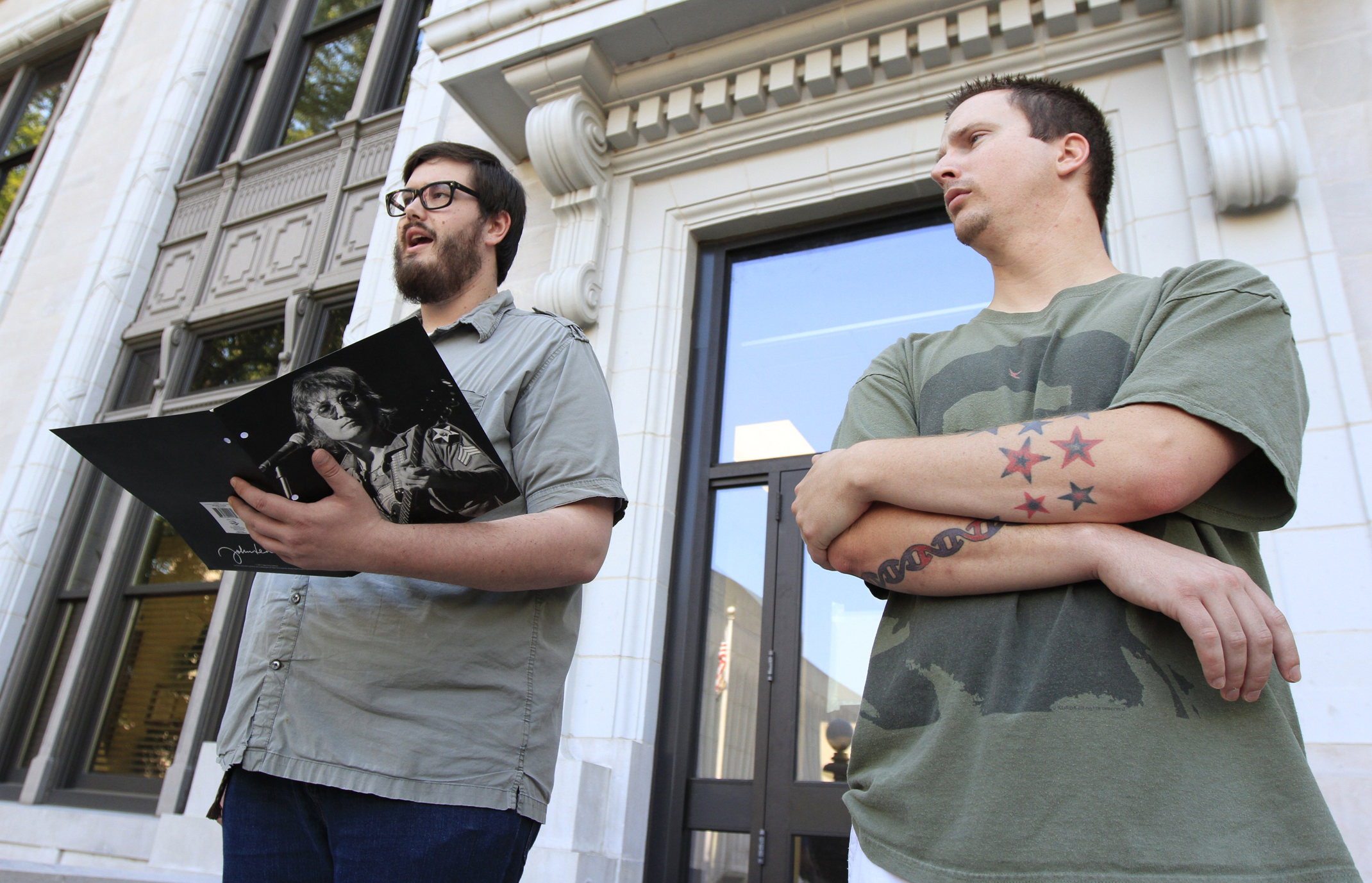SUMMARY OF APPEAL
• The U.S. District Court for East Tennessee should have granted a preliminary injunction to stop prayers before Hamilton County Commission meetings based on a test applied from the Supreme Court case Lemon vs. Kurtzman.• The county commission's prayer policy was merely a "sham."• The policy has flaws akin to other improper and similar policies.• The trial court did not consider a lack of compelling state interest.• The county's attempt at equal access to prayer at meetings is "a fool's errand."• The county commission's argument at history fails in the face of actual history.Source: Brief of Appellant, Case No, 12-6079, U.S. Court of Appeals for the 6th Circuit
The men attempting to halt the Hamilton County Commission's practice of prayer before meetings have taken the next steps in their appeals process, emphasizing their claims that the commission's recently-adopted prayer policy a "sham."
Robin Flores, the attorney for plaintiffs Tommy Coleman and Brandon Jones, filed a 46-page brief Monday with the U.S. Court of Appeals, arguing against a U.S. District Court judge's decision not to grant a preliminary injunction which would have temporarily halted prayer before meetings.
Coleman and Jones originally filed a lawsuit against the commission in June. The request for injunction was filed shortly after, putting the overall case on hold.
U.S. District Court Judge Harry S. "Sandy" Mattice decided in late August not to grant the preliminary injunction filed by the group, which would have temporarily halted prayer.
One of Mattice's reasons for the decision was that not enough time had passed since the commission's enactment of its prayer policy, which was quickly adopted after the lawsuit was filed and was meant to show that the meeting invocations were inclusive to other faith traditions.
Flores argues that "even one or two" prayers under the new policy were proof enough to show that the commission has not changed its ways and that the prayers still cause harm to those who feel excluded and isolated by them.
He takes issue with how the new list of ministers was created, saying county commissioners gave suggestions and others were found in the phone book.
"The simple fact remains that the [county commission] controls the manner of who gets selected to give a prayer, and the methodology the defendant uses smaks of a disparate impact upon the minorities that make up the citizenry of Hamilton County," Flores wrote.
Flores also insists that the judges should make their decision using what's called the "Lemon test," based on a Supreme Court case that has since been used in cases dealing with religious displays and the teaching of creationism.
The county's local counsel, Steve Duggins, and County Attorney Rheubin Taylor said Tuesday they had not yet read through the appeal brief and could not comment.
Since the new policy was adopted, nearly all of the prayers have been Christian prayers, with many offered "in Jesus'" name.
A rabbi who was scheduled to offer a prayer in August canceled his participation until the lawsuit was resolved. When a reverend from St. Tikhon's Orthodox church did not appear to offer his scheduled prayer on Nov. 1, Commissioner Jim Fields offered the invocation.
A decision on the preliminary injunction will not be the final decision of the underlying case. Flores said he doesn't expect the appeal to be decided until the end of next year.
Though other circuits have ruled directly on legislative prayer, the 6th Circuit has not.
Contact staff writer Kate Harrison at kharrison@timesfreepress.com or 423-757-6673.
